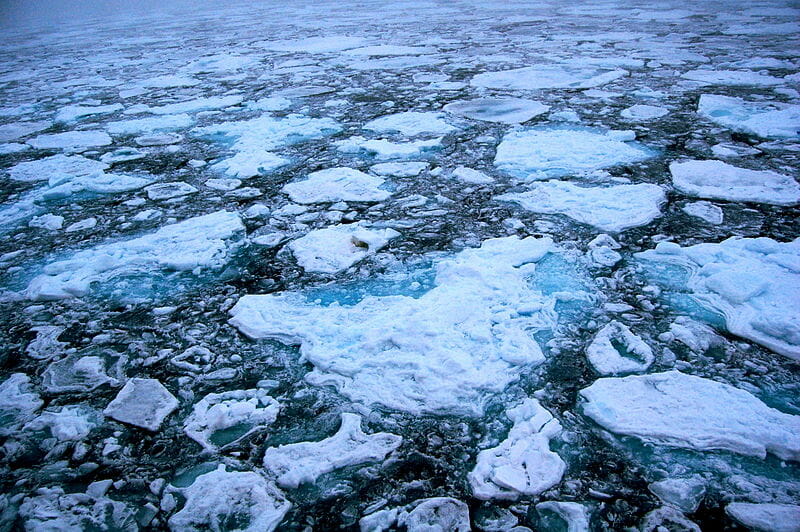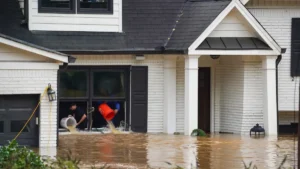Latest Round of Climate Talks Didn’t Move the Needle Much, Delegates Say
Despite the “missing in action” U.S., participants believe the just-ended talks in Germany made progress—but too little and too slowly. Wikimedia Commons
Wikimedia Commons
The Bonn climate talks, a crucial round of UN negotiations on pumping up the muscle of the global treaty on tackling climate change, the Paris Agreement, has ended in Germany.
Participants heading for home know they have a daunting workload ahead, with too few solid outcomes achieved in the last 10 days. But despite the absence of the US government, described by some as “missing in action” after Donald Trump’s repudiation of the Paris treaty, many still hope that Bonn has proved a useful prelude to the next climate summit.
This dogged optimism apart, the organisers, the UN Framework Convention on Climate Change (UNFCCC), alarmed at Bonn’s lack of progress, are arranging an unusual extra week of talks in Bangkok in September to help the world leaders who will meet in Katowice in Poland in December to agree how to prevent the world from dangerously overheating.
One key sticking point so far is the failure of developed countries to produce the previously promised $100 billion a year by 2020 to allow poor and vulnerable countries to adapt to climate change. In some cases the survival of small island states depends on that help.
The purpose of this year’s round of UN climate talks is to finalise and implement the Paris Agreement, concluded in 2015, which aims to prevent global temperatures from increasing by more than 2°C over their pre-industrial levels, and if possible keep them below 1.5°C.
Patricia Espinosa, executive secretary of the UNFCCC, is cautiously optimistic about progress, but says many voices at Bonn underlined the urgency of advancing more rapidly. She said the extra negotiating session in Bangkok had been arranged to speed things up.
To help to clarify the remaining issues the delegates in Bonn asked for a “reflection note” on progress so far, to help governments to prepare for Bangkok, which should help specifically to finalise the texts to be signed off in December in Katowice.
Soon after the Bangkok meeting, on 8 October, the Intergovernmental Panel on Climate Change (IPCC) is to publish a special scientific report describing how critically close the world already is to a 1.5°C increase in temperature and outlining the drastic action governments need to take to avoid far exceeding it.
This is likely to further galvanise political action from many countries, including China and India, whose governments have already realised that climate change threatens food supplies and national stability.
Sharing Solutions
In parallel with the formal negotiations, the Bonn meeting hosted the long-awaited Fiji-led Talanoa Dialogue. This follows the tradition in the Pacific region, where the goal of a “talanoa” is to share stories to find solutions for the common good.
In this spirit, the dialogue in Bonn saw some 250 participants share their stories, providing fresh ideas on how to tackle climate change and renewing their determination to raise ambition.
Instead of only those governments which are parties to the Climate Change Convention talking to each other, the dialogue includes cities, businesses, investors and regions, all engaged for the first time in interactive story-telling.
This partly sidesteps the problem of the missing US government, allowing many American businesses and cities to ignore their president and continue to take part in the talks.
More Ambition
Frank Bainimarama, prime minister of Fiji and president of the last UN climate summit (COP23), said: “We must ensure that the Talanoa Dialogue leads to more ambition in our climate action plans. Now is the time for action. Now is the time to commit to making the decisions the world must make.”
At the end of the Bonn negotiations, the chair of the Least Developed Countries Group (LDC), Gebru Jember Endalew, said the Group had come to Bonn ready to shift gears and make concrete progress. He went on: “The Group is concerned by the lack of urgency we are seeing to move the negotiations forward. It is time to look at the bigger picture, see the severe impacts that climate change is having across the world, and rise to the challenge.
“Finance is key to meeting the goals of the Paris Agreement. In the face of climate change, poor and vulnerable countries are forced to address loss and damage and adapt to a changing climate, all while striving to lift their people out of poverty without repeating the mistakes of an economy built on fossil fuels. This is not possible without predictable and sustainable support. Countries have failed to deliver on pre-2020 commitments.”
On climate finance, Harjeet Singh, global climate lead at ActionAid International, said: “The issue of finance underpins so many different parts of the climate negotiations, because poor countries simply can’t cover the triple costs of loss and damage, adaptation and mitigation on their own.
“But with developed countries refusing to move on finance, lots of pieces are still unfinished. This is holding up the whole package, which is supposed to be finalised at the end of this year. Issues are piling up, and it’s a dangerous strategy to leave everything to the last minute.”
Sharp Differences
Also concerned about finance was Alden Meyer, of the Union of Concerned Scientists. He said: “While some headway was made in Bonn on several more technical topics, sharp political differences remain on a handful of issues, especially on climate finance and the amount of differentiation in the Paris Agreement rules for countries at varying stages of development.
“These issues are above the pay grade of negotiators in Bonn, and will require engaging ministers and national leaders to resolve them.”
A more cheerful note came from Camilla Born, of the environmental think tank E3G. She said: “Negotiations went better than expected. The next challenge is to mobilise the political will to get the COP24 outcomes over the line in Katowice.
“This won’t be easy but the Polish Presidency has the chance to up their game. The pressure is on the likes of the EU, China and Canada to come good on the universality of the Paris Agreement even whilst the US is for now missing in action.”
Your support is crucial…With an uncertain future and a new administration casting doubt on press freedoms, the danger is clear: The truth is at risk.
Now is the time to give. Your tax-deductible support allows us to dig deeper, delivering fearless investigative reporting and analysis that exposes what’s really happening — without compromise.
Stand with our courageous journalists. Donate today to protect a free press, uphold democracy and unearth untold stories.









You need to be a supporter to comment.
There are currently no responses to this article.
Be the first to respond.